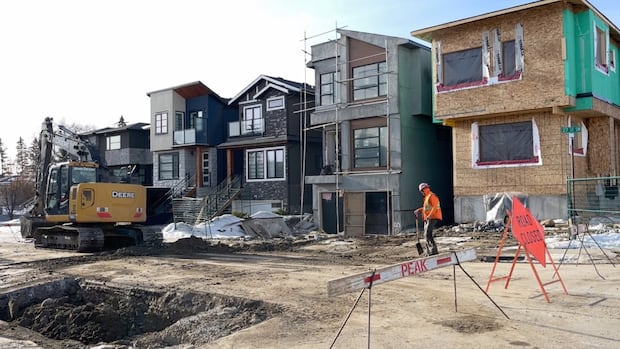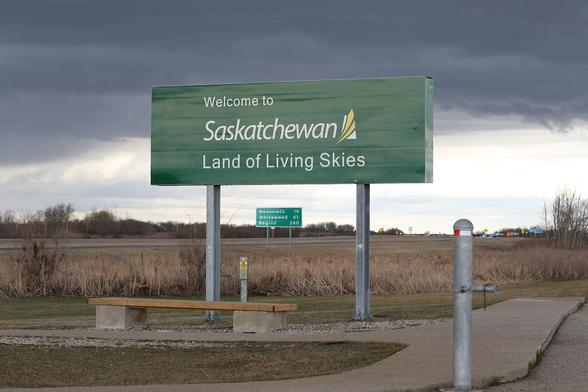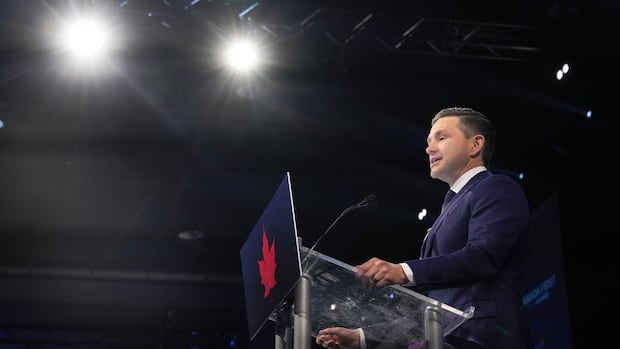Happy #StarWarsDay! What better day to join the rebellion?
JOIN: https://www.calgaryclimatehub.ca/membership
VOLUNTEER: https://www.calgaryclimatehub.ca/volunteer
Happy #StarWarsDay! What better day to join the rebellion?
JOIN: https://www.calgaryclimatehub.ca/membership
VOLUNTEER: https://www.calgaryclimatehub.ca/volunteer
Your Sunday morning podcast is HERE. Fire up that morning coffee and enjoy.
Have a GREAT Sunday!
https://www.podcastics.com/episode/357264/link/
#WellBeingEconomy #Parkland #Oligarchy #Climate #TrumpCrash #DonutEconomics #cdnpoli #abpoli #yyc #ClimateAction
Not me finishing a speech for 1100 people at 4:30am...
If you're at Convention, like @yaygya (awesome to meet you!!), please consider voting for me for VP Edmonton at 9:20 this morning!
Most importantly, if you're at Convention, COME AND SAY HI.
Do I have this right? The "Alberta is calling" campaign uses taxpayers' $$ to compensate some skilled Canadians to relocate to Ab, so industries can have workers. The influx is causing rapid real estate & rental increases. IOW, UCP employer-subsidizing policy means Ab taxpayers are paying to have their housing affordability made worse. Yes?
#Abpoli #Housing #Affordability
https://www.cbc.ca/amp/1.7523967

"Bill 54 is an unmistakable attempt to flirt with the concept of Alberta separation for your own personal political gain."
The Four Nations Chiefs of Maskwacis issue a joint statement to Alberta Premier Danielle Smith in response to Bill 54.
#abpoli
Cree Nations speaking truth to separatists.
"If any Canadians are not happy living in Treaty lands, they are free to apply for citizenship elsewhere." #abpoli
Being treated fairly doesn't mean allowing #Alberta to ship even more #oil when the #ClimateCrisis means eventually shuttering the #tarsands
Partner with them to develop #solar #electricity for the new #canadian energy grid or sale to the #USA
Partner with them to build high speed #rail

#transmountain #pipeline still not running at full capacity? Isn't #daniellesmith always complaining that #ottawa is strangling #alberta ?
As to ownership, keep it owned by the #canadian #government

They say "change comes from within" & how could it be more true than with our friends at #Greengate & their incredible #EnergyTransition work right here in Alberta showing leadership to the rest of Canada? https://www.pembina.org/blog/clean-energy-employment-surging-globally-its-time-canada-join?fbclid=IwY2xjawJcCJVleHRuA2FlbQIxMQABHcL6r61Pa3jm3UYQ8_Ves6V4ELFhQzgsKLm5Qq4A4DSIDhALBqQAkhBEHg_aem_5BBggs4PCQzlOh6kYzij7w
#abpoli #cdnpoli #Renewables #CleanEnergy #Climate

"In #AGoodWar #SethKlein argues problem one is we massively underspend on climate. We're not nearly reaching the level of importance & urgency that it is. Spend what it takes to win. Secondly we need to create new institutions like crown corporations that are empowered to do what it takes."
@philosophicalfish @northernlights “Some guy calling himself Ian Smith is on Line 1 for Danielle Smith. He says that if she’s anybody other than Steve Allen, she’s stealing his act.” #ABPoli #CanPoli #TreasonBarbie
A story in two panels of Pierre Poilievre losing his seat and getting a do-over.
Western secession would be the same kind of shit sandwich for Alberta & Saskatchewan as Brexit was for the UK: not very tasty after all.
https://www.cbc.ca/news/politics/western-secession-economy-1.7524422

@gemelliz @CanadianCrone @Sanderde The first thing PM Carney needs to do is ban any party leader without a security clearance from the House of Commons. Potential traitors are not welcome in our system of government. And on that note, fuck you, Danielle Smith. #cdnpoli #abpoli
I can't find the words to express how I feel about 2x Loser PP becoming my MP after being fired for being a fucking creep. I'll have to find some when I contact him as a voter in his riding.
For those following Alberta politics closely: Do we think Danielle Smith will support PM Carney’s push to remove provincial trade barriers before Canada Day, or might she become an obstacle? Smith has voiced support in the past, recognizing clear benefits for Alberta businesses and the energy sector; but she might also calculate there are more political points to be gained by opposing anything federal. Thoughts?
I’d love to see voters in this #Alberta riding give the middle finger to #Poilievre who’s parachuting in, but I doubt they will. #ABpoli #NeverVoteConservative
https://www.cbc.ca/news/politics/poilievre-to-run-in-alberta-byelection-1.7525104

Just saw a headline saying that Alberta's measles count just hit 200 cases.
My sister is a paramedic in north-central Alberta. One day last week, I was talking to her on Discord (while gaming). Her dog was with her. He was bugging her, and she said, "No, don't lick my arm, it's poisonous!"
I, of course, queried that statement. She explained that on her shift, she'd been wearing a short-sleeved uniform top. She was gloved and masked, but after the call, she also slathered hand sanitizer all over her arms.
Why? Because the patient was showing signs of measles.
My sister works in an area that is very anti-government and anti-vaccine. Aside from the usual dangers of EMS work (e.g., one time, an unresponsive victim in a car woke up and slammed her hand in the door), she also has to contend with the possibility of catching communicable disease that *should have been eradicated*.
tl;dr: Alberta is trying to kill my paramedic sister with vaccine-preventable illnesses.
"Poilievre to run for Alberta seat after MP Damien Kurek agrees to step down"
Matters little. Poilievre is permanently damaged. He is forever tainted as that Political Hack who blew a 25% lead. A politician who has no grasp of issues and and how to move a country forward. A wrecking ball is not what Canadians wanted or will ever support.
Absolutely frightening, and she has also legislated her big party politics into our municipal elections as well.
"Even though we dodged a Canadian version of Trump on the federal level, Alberta’s own version, Danielle Smith, chose today to introduce sweeping reforms to Alberta’s election, encouraging big money back into our contests while pushing a variety of voter suppression rules." - Rachel Notley
https://drjaredwesley.substack.com/p/danielle-smiths-electoral-reforms
Excerpts: The UCP’s reforms reflect a deeper shift toward the strategies pioneered by Trump Republicans: leveraging dark money, undermining trust in elections, weaponizing recalls, disenfranchising opponents, suppressing voter turnout, and empowering radical populist movements.
This convergence is not accidental. It is a conscious political strategy.
The UCP is lowering the barriers to holding province-wide referendums, a key demand from separatist factions within the party’s base.
In the United States, Trump’s allies have increasingly used referenda to pursue partisan objectives, bypassing legislative scrutiny. In Alberta, easier referendums open the door to populist campaigns on complex issues including, potentially, a vote on Alberta’s secession or joining the United States.
At a moment when the premier has been accused of stoking separatist sentiment, loosening these requirements represents a concession to radical elements that seek to destabilize Canadian federalism. If she is the federalist she claims to be, Smith should at least consider reviewing the trials and tribulations of David Cameron, the unwitting architect of Brexit.
The UCP's bill eliminates “vote anywhere” provisions, restricts special ballots, and introduces additional identification requirements for voters.
All three measures make voting more difficult, reversing decades of progress across Canada to improve voter equality.
As research — including our own — has shown, voter ID laws disproportionately affect younger and older, Indigenous, disabled, rural, and low-income voters. These groups are less likely to have government-issued photo ID, and new requirements can create barriers that depress turnout.
The bill reduces the number of signatures required to initiate recall petitions against MLAs and municipal leaders.
While pitched as a mechanism for greater accountability, experience from the United States suggests otherwise. Lower thresholds facilitate the weaponization of recall petitions by organized political groups seeking to destabilize elected officials over ideological disputes, not misconduct.
In Republican-led states, such tactics have created a chilling effect, discouraging politicians from making difficult but necessary decisions for fear of constant political retaliation.
The timing of this bill is significant and far from coincidental.
Premier Smith introduced these controversial reforms the day after the federal election hoping to catch the media off guard and hoping few of us would notice given the attention on Ottawa.
That is scarcely a good-faith context for debating the most consequential set of reforms to election laws in Alberta’s history.
Had the reforms been tabled later, they would have drawn national attention and hurt Pierre Poilievre's federal Conservatives by reinforcing narratives about Trumpism within the conservative movement.